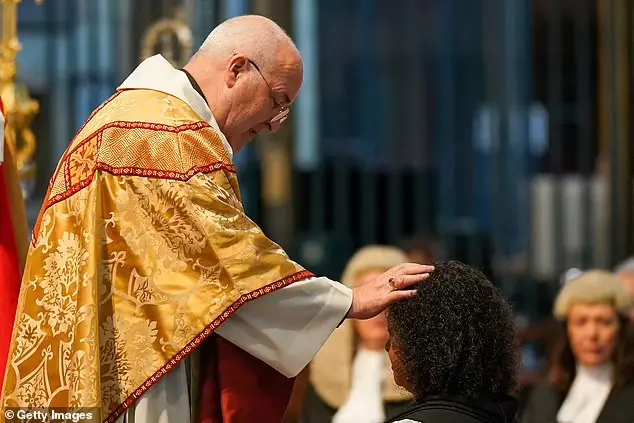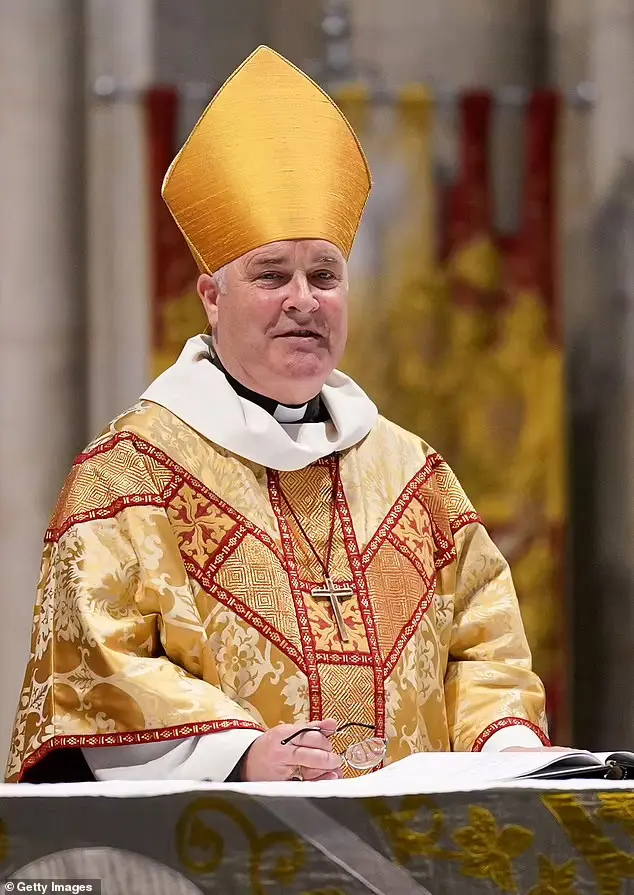In a thought-provoking address to the General Synod, the archbishop of York, Stephen Cottrell, has sparked a debate within the Church of England by suggesting that the opening words of the Lord’s Prayer may carry patriarchal associations that could be “problematic.”
Acknowledging the phrase “Our Father,” which has been recited by Christians worldwide for over two millennia, Archbishop Cottrell highlighted its potential sensitivity due to its connection to paternalistic structures.
During his speech, which primarily focused on the need for unity within the Church, Cottrell briefly delved into the concerns surrounding the phrase “Our Father.” He acknowledged that the term can be problematic for individuals who have experienced destructive or abusive relationships with their earthly fathers. Moreover, he suggested that a patriarchal framework can oppressively influence various aspects of life.

The archbishop’s remarks have divided members of the Church of England, a body known for its visible disagreements on matters of sexuality, identity, and equality. Canon Dr. Chris Sugden, chair of the conservative Anglican Mainstream group, pointed out that Jesus himself urged people to pray using the term “our father” in the Bible.
Dr. Sugden questioned whether the archbishop was implying that Jesus was mistaken or lacked pastoral awareness, suggesting that some church leaders tend to align their views more with cultural shifts rather than scriptural teachings.
Rev Christina Rees, a prominent advocate for female bishops, praised Cottrell for raising an important issue that has concerned Christians for many years. She emphasized that the fundamental question is whether God truly believes that male human beings represent His image more fully and accurately than women—a notion she firmly rejects.
The Church of England previously announced in February that it would examine the use of gendered language in reference to God. This development came after priests expressed a desire to employ gender-neutral terms instead of traditional masculine pronouns.

Recognizing that God transcends gender, the Church agreed to establish a commission on gendered language, aiming to align worship practices with the diverse ways in which God is depicted and described in scripture.
While the mention of “Our Father” was a small part of Archbishop Cottrell’s address, most of his speech revolved around the significance of the word “our” and the need for greater unity among members of the General Synod.
He lamented the prevalence of disunity and emphasized the need for reconciliation within the Church, asserting that division should not be considered normal but rather a disgrace and a departure from Christ’s teachings.
Read also: Rogue Preachers, the Freedom of Worship and Public Safety
The issue of same-sex marriage remains one of the most divisive topics within the Church of England. Earlier this year, the Church approved the provision of blessings for gay and lesbian couples who have undergone a civil wedding.
However, final approval for the associated prayers, along with decisions regarding marriage rights for gay and lesbian clergy and the celibacy requirement for clergy in same-sex relationships, have been postponed until November.
Archbishop Cottrell’s remarks regarding the patriarchal connotations of the Lord’s Prayer have ignited discussion among clergy members.
While some welcome the archbishop’s reflections, others, particularly traditionalists, criticize the potential shift towards what they perceive as “woke language” within the Church
Subscribe to Switch TV















